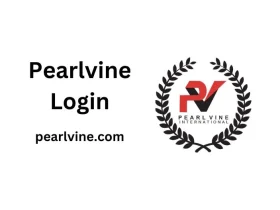Investors often diversify their portfolios and generate passive income through real estate investing. However, it can be difficult for beginners to find the right strategy that fits their resources and goals.
Fortunately, many strategies range from beginner-friendly, low-risk options to more advanced methods for experienced investors.
Getting Started

Real estate investing is one of the most popular ways to build wealth for beginners. It provides stable cash flow, property value appreciation, and rental income while providing a solid hedge against short-term market volatility (in comparison to stocks).
When it comes to maximizing your return on a real estate investment, there are many factors that you need to keep in mind. Location is crucial, as property values are often based on proximity to essential amenities such as public transportation and freeways.
Another advantage real estate investors have over stock market investors is the ability to leverage their investments using debt. This can allow you to buy a much larger piece of property than you would otherwise be able to afford by only paying for the cost of the land itself. This is a potent tool that can help you maximize your investment returns. However, this strategy is also with risk.
Finding Your Niche
Investing in real estate is a demanding venture that calls for proficiency, strategic planning, and concentration. The promise of quick profits tempts many investors, but it’s essential to find a niche that will allow you to master your real estate investment strategy and develop long-term wealth.
Many real estate investing strategies exist, but choosing a unique niche will set you apart from your competition and increase your profit potential. Consider specializing in a specific location or property type, such as townhomes in a downtown area or rural farm rehabs.
You may also choose to specialize in a particular type of property or transaction, such as buying and holding rental properties or wholesaling homes. Choosing a unique specialty will also help you become an expert in your chosen market, making you a trusted source of information for clients and other real estate professionals. For example, an agent with expertise in handling probate and estates or equestrian properties can make their sellers feel more comfortable.
Financing
Real estate is a time-tested investment, one of the most lucrative avenues to create wealth and add tangible assets to your portfolio. But, like any investment, it comes with some risks.
Learning from caliberco.com how to evaluate properties it’s beneficial to conduct market research and create a strong business strategy. Fortunately, many resources exist for investors to gain the necessary knowledge to be successful.
Investing in rental properties is a reliable way to generate a consistent income stream and achieve long-term asset appreciation. However, new investors should always ensure sufficient liquidity to cover unexpected expenses like repairs or evictions.
Fortunately, there are several ways to finance real estate investments, including private and hard money lending. These options may have lower qualifications and offer greater flexibility. They also help new investors reach their goals without taking on excessive risk. These alternative sources can also be more affordable than traditional banking. Investing in real estate is an excellent way to fund long-term goals, such as retirement and college savings.
Closing
Real estate investing is one of the most common ways to build wealth. It provides stable income, passive income, and long-term appreciation. It can also help you create financial and time freedom. However, it has risks.
Some significant risks associated with real estate include high entry costs, property management, and interest rate fluctuations. It is also essential to know what you are buying. For example, you should buy a multifamily rental that is in an area where there are plenty of people who rent.
The current housing market is booming, but this doesn’t necessarily mean the real estate industry is in a bubble. Real estate can be an excellent diversifier in a diversified investment portfolio, as it has historically shown a low or negative correlation with other volatile assets. Real estate also offers unparalleled leverage opportunities, making it possible to purchase a substantial asset for a small percentage of its total value.











